Alphabetizing Worksheets for Ages 5-9
5 filtered results
-
From - To
Alphabetizing Worksheets for ages 5-9 are designed to develop your child's understanding of alphabetical order essential for literacy. These worksheets feature engaging activities that challenge young learners to organize letters, words, and simple phrases in alphabetical sequence. By practicing these tasks, children improve their sorting skills, enhance vocabulary, and gain confidence in reading. Perfect for at-home learning or classroom use, our printable resources cater to the varying needs of kids aged 5-9, ensuring learning is fun and effective. Allow Kids Academy to support your child’s educational journey with our expertly crafted alphabetizing worksheets.
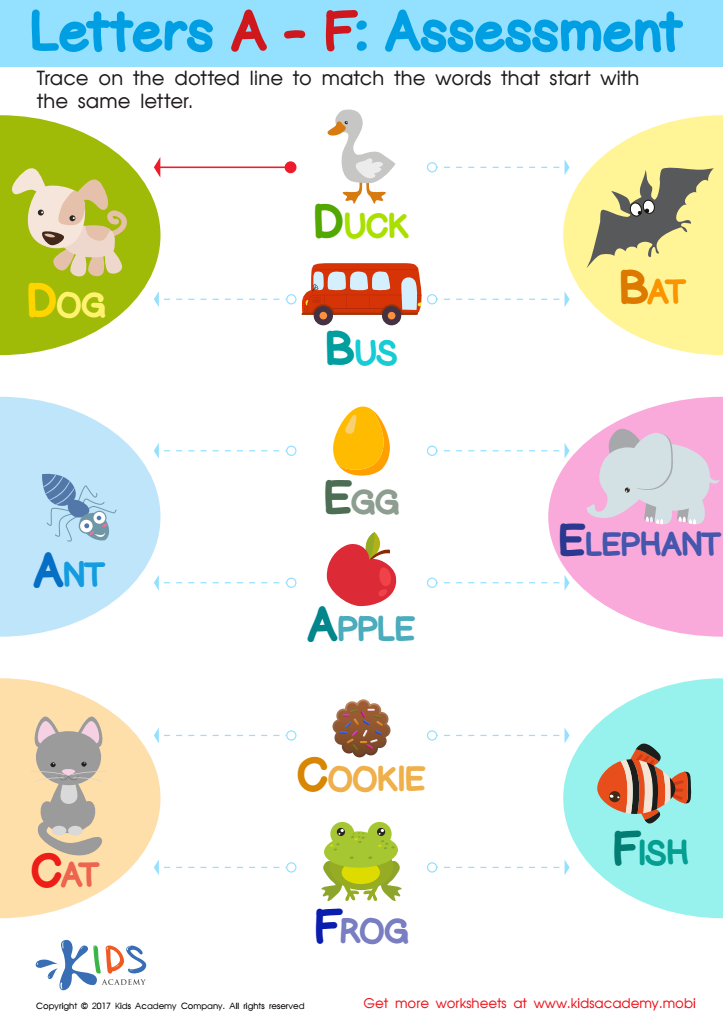

Letters A - F Worksheet
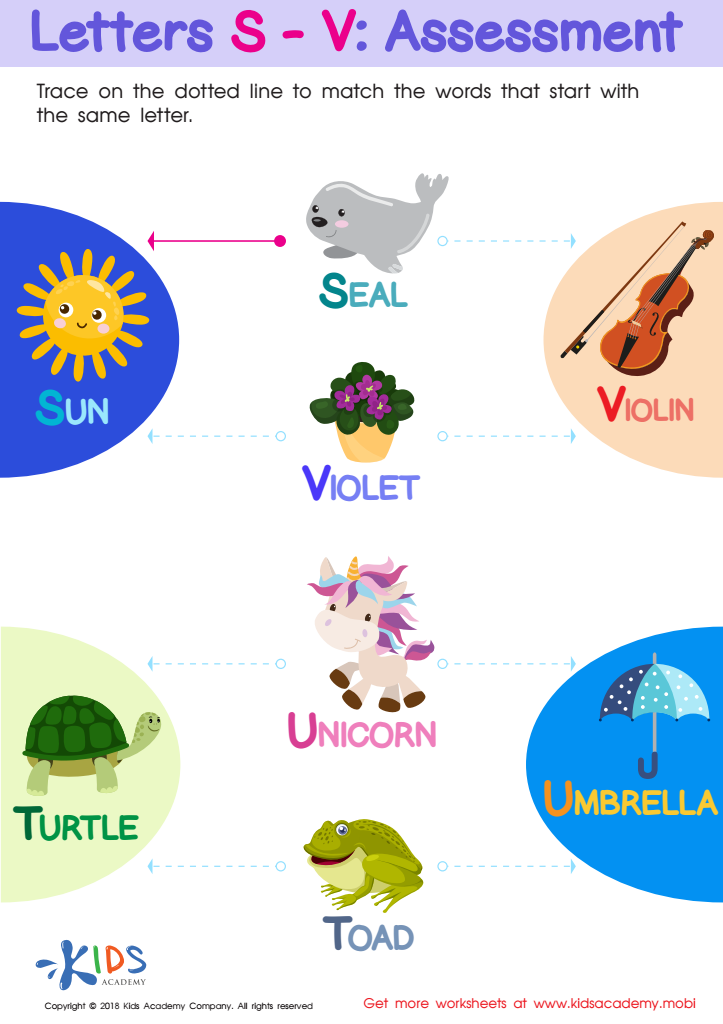

Letters S - V Tracing Worksheet
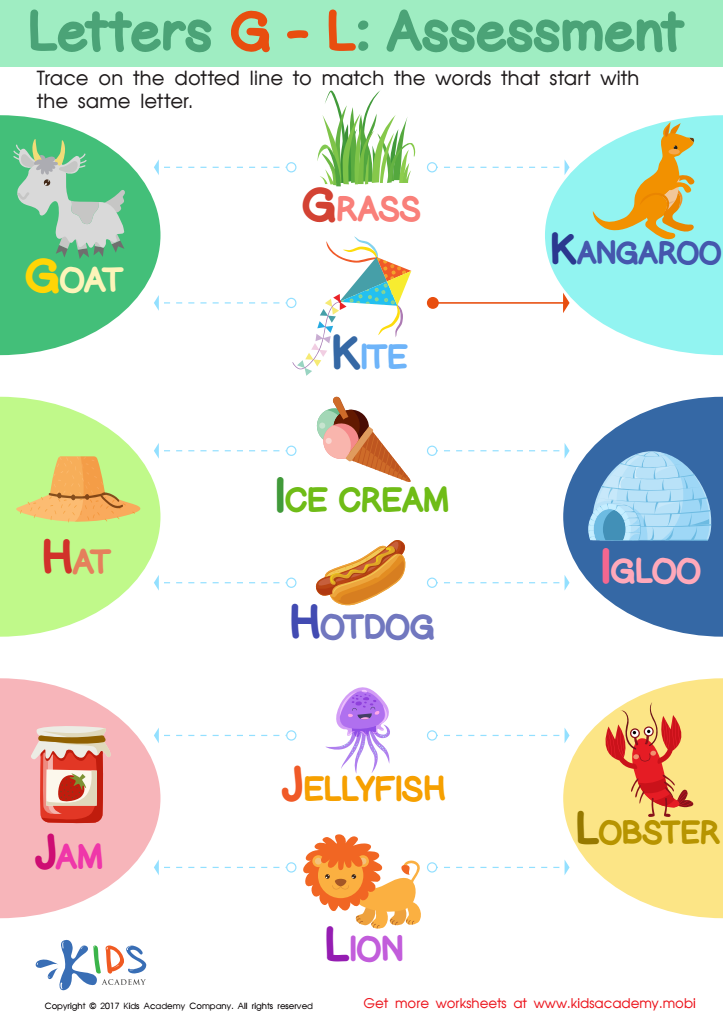

Letters G-L Worksheet
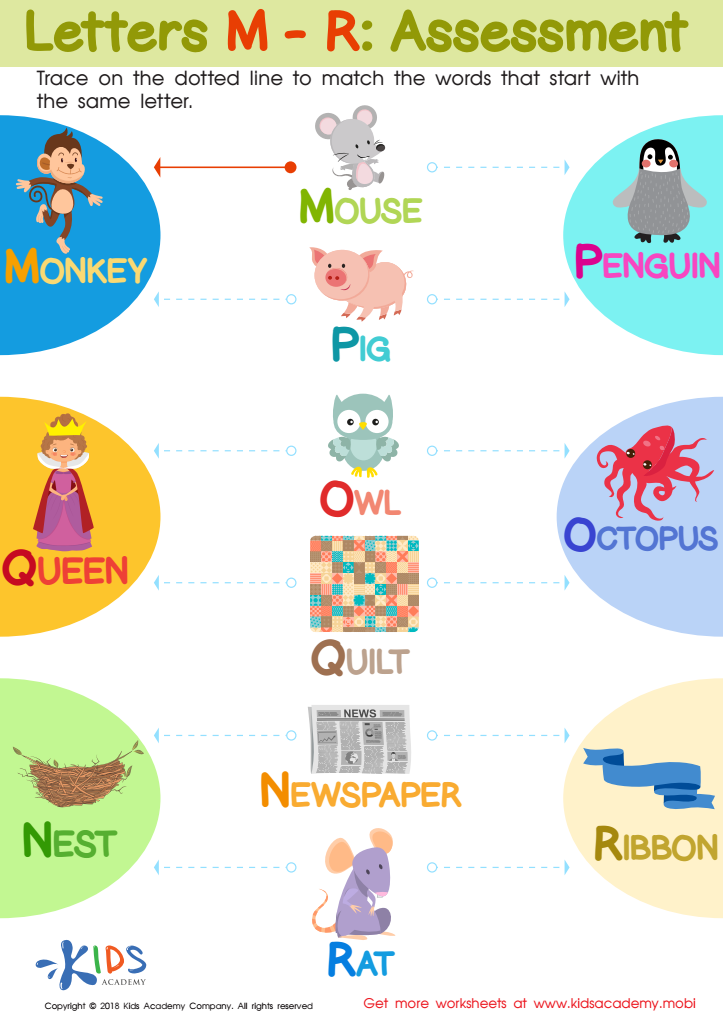

Letters M-R Tracing Worksheet
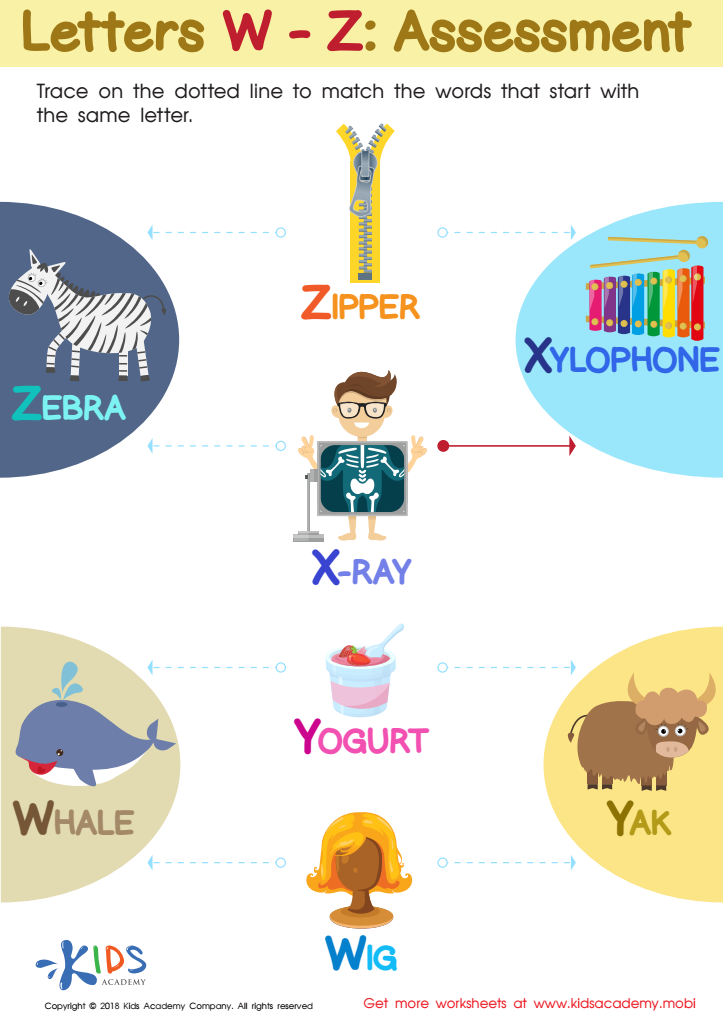

Letters W–Z Tracing Worksheet
Caring about alphabetizing for children aged 5-9 is crucial for several reasons. Alphabetizing helps young learners develop essential literacy skills by enhancing their understanding of letter recognition and sequence. As they grasp the order of the alphabet, children build a foundation for improved reading and writing proficiency. This skill is fundamental for vocabulary development, as it aids in dictionary usage and helps students organize and retrieve information effectively.
Moreover, alphabetizing fosters cognitive development, particularly in memory and analytical thinking. When children practice putting words in alphabetical order, they engage in problem-solving activities and learn to recognize patterns, which are critical skills for academic success across different subjects.
Socially, mastering alphabetizing enables children to participate more confidently in classroom activities and group learning settings. It ensures they can keep up with organized learning systems like class rosters, library book sorting, and directory navigation.
Additionally, early success in alphabetizing can boost a child’s self-esteem. As they see tangible progress in their abilities, their motivation for learning increases.
In sum, caring about alphabetizing helps establish a solid literacy foundation, fuels cognitive and social development, and encourages a positive attitude towards learning. It prepares young learners for future academic tasks and everyday situations that require organizational skills.

 Assign to the classroom
Assign to the classroom





